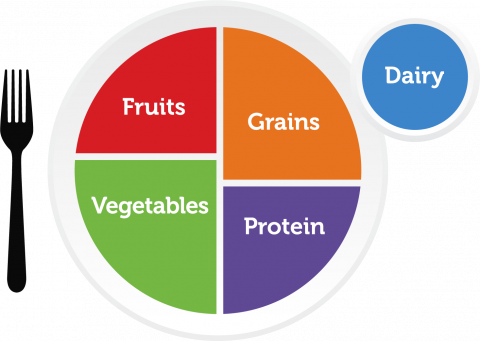
Nutrition and Mental/Behavioral Health
What does nutrition have to do with our child’s mental and behavioral health?
As parents we want to provide our children with the best nutrition we can. In our world today there are many barriers that can prevent us from giving our children the best nutrition whether it is our own eating habits or our children’s likes and dislikes. Tom Baranowski, PhD Baylor College of Medicine states that behavioral nutrition can help us change our behaviors and chose healthier foods that can help our mental health and our children.
Having knowledge is the first step in helping us make better decisions below are several websites that can help you in food choices and nutrition:
MyPlate | U.S. Department of Agriculture
https://www.myplate.gov/
This website can help you understand the general requirements that is necessary for overall nutrition based on current research. This website is continually being updated and is an overall helpful resource.
New 2020 Dirty Dozen and Clean Fifteen Food Lists Released by EWG (goodhousekeeping.com)
https://www.goodhousekeeping.com/health/diet-nutrition/a31916678/dirty-dozen-foods-2020-list/
This website can help you make decisions about current fruits and vegetable that are safe from chemicals that are known to be harmful to us. Each year there is a new list of the Dirty Dozen due to changes in our environment and produce.
6 essential nutrients: Sources and why you need them (medicalnewstoday.com)
https://www.medicalnewstoday.com/articles/326132
Nutrients can be challenging to understand, this is a very easy guide to help you gain some understanding of what may be helpful and have benefit rather than risk. There are nutrients that taken in excess that can cause harmful effects.
The Role of Functional Foods, Nutraceuticals, and Food Supplements in Intestinal Health (nih.gov)
https://www.ncbi.nlm.nih.gov/pmc/articles/PMC3257668/
Intestinal health is a new concept that has been in the research for many years but not necessarily understood. Our intestines have a lot of power in overall health and how nutrients are processed from the food we eat. Taking care of our intestinal health can help our emotional and physical health.
Should You Take Dietary Supplements? | NIH News in Health
https://newsinhealth.nih.gov/2013/08/should-you-take-dietary-supplements
Should you take dietary supplements is a question that many people have and often are not given answers from people that are educated adequately to give responses. Being educated and seeking people to assist you is important and understanding the importance of dietary supplements when needed.
Why nutritional psychiatry is the future of mental health treatment (theconversation.com)
https://theconversation.com/why-nutritional-psychiatry-is-the-future-of-mental-health-treatment-92545
In our future if given the emphasis needed, we maybe able to treat many emotional issues with nutrition.
Now that you have the information it is up to you to implement the changes in the way your family’s nutritional needs are met. Eating a family meal together helps to bond you together and have a long term protective relationship with substance use issues, Eisenberg,Neumark-Sztainer,Fulkerson & Story.2008.
Using dietary supplements is a choice that can ensure that your child obtains the necessary micronutrients that are needed for overall physical and mental health, in one study, 2012 children over 8 were low in magnesium, phosphorus, vitamins A, C and E.
When children do not get the necessary nutrients many physiological and psychological issues can occur for example a child that does not eat breakfast or lunch can feel exhausted and not be able to stay focused in school, children that are consuming large quantities of sugar can ups and downs during the day that can impact their attention, focus and mood. Children that are lacking certain nutrients can have their own physical and brain growth be impacted which could change their learning and emotional growth. Certain nutrients can impact a child’s growth positively and negatively and create changes that may be long lasting.
What if my child is a picky eater? is a question that is asked a lot. If your child is consuming the correct macro/micronutrients and calories from the food they are eating then forcing or worrying is not necessary.
I have a PhD In psychology with a focus in health psychology and studied behavioral nutrition, the information I have provided is what I have found helpful when working with parents that are concerned about their child’s nutrition. If you would like further information, please contact me at:
Marcia Baker PhD
References
Eisenberg ME, Neumark-Sztainer D, Fulkerson JA, Story M. Family meals and substance use: is there a long-term protective association? J Adolesc Health. 2008 Aug;43(2):151-6. doi: 10.1016/j.jadohealth.2008.01.019. Epub 2008 Apr 11. PMID: 18639788.
Bailey RL, Fulgoni VL 3rd, Keast DR, Lentino CV, Dwyer JT. Do dietary supplements improve micronutrient sufficiency in children and adolescents? J Pediatr. 2012 Nov;161(5):837-42. doi: 10.1016/j.jpeds.2012.05.009. Epub 2012 Jun 18. PMID: 22717218; PMCID: PMC3477257.
